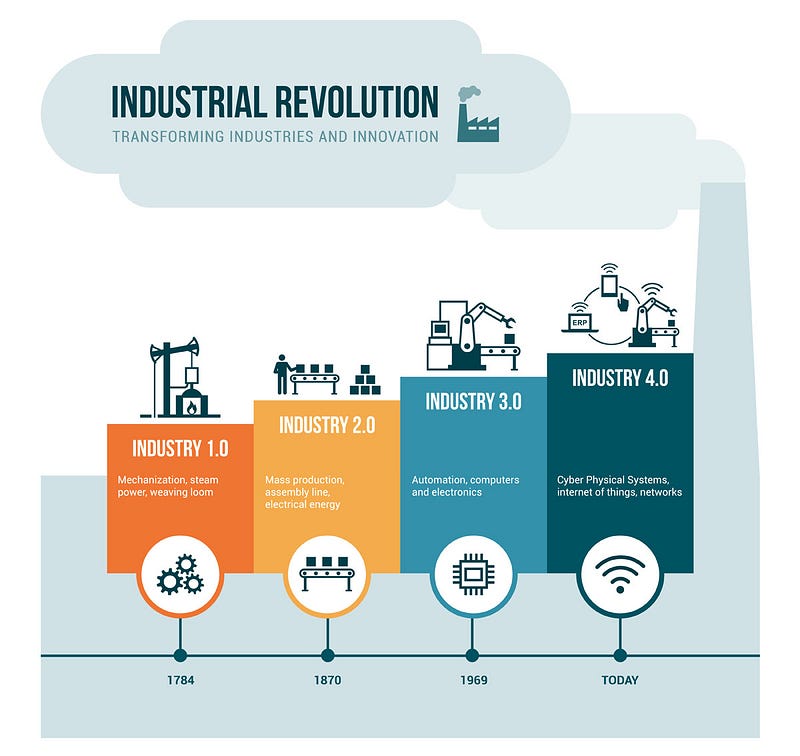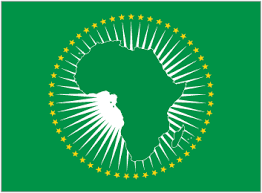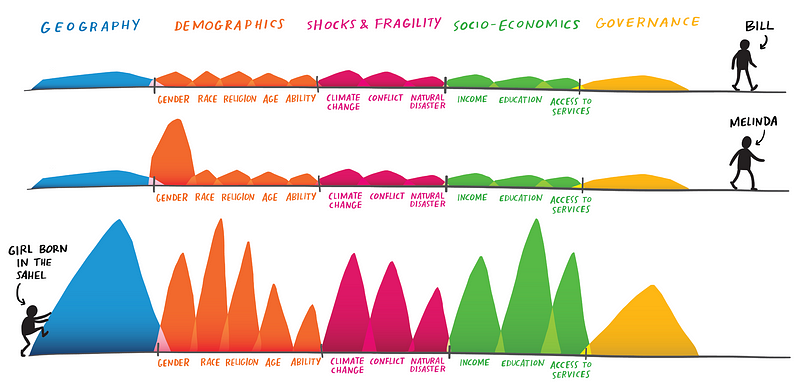How Africa Should Ride the Train of the Fourth Industrial Revolution

All developed countries successfully passed through all the stages of Industrial Revolutions. Underdeveloped countries in Africa are struggling to make a transition from one stage to another. The Second and Third Industrial Phases heavily relies on availability of electrical power. Mass production of goods in assembly lines requires huge amounts electricity. Beside the energy factor, skills and knowledge are prerequisites of Industry 2.0, Industry 3.0 and Industry 4.0. Most African countries have inadequate supplies of electricity. Technical skills and expert knowledge are scarce in most African countries.
The good news is that Industry 4.0 can be powered by batteries and solar panels. At the heart of the Fourth Industrial Revolution (Industry 4.0) is the Internet. Internet Service Providers (ISPs) have boosters or base stations to facilitate communication among devices like cellphones and computers. In addition, there are satellites in space to enable connectivity of all communication devices in the world in real time. Boosters can be powered with batteries, solar panels or generators. Satellites are powered by solar panels and batteries. Solar panels, batteries and generators are cheap sources of electrical power. As such, ensuring that every person is connected to the internet requires little capital.
Governments, ISPs and big business must roll out free internet access in public places like clinics, courtrooms, libraries, hospitals and learning institutions. Those people who cannot afford a smartphone but are in need of accessing the internet will have to be provided with the devices. For example, unemployed youths. Furthermore, people will need to be trained in new technical skills like coding, artificial intelligence, machine learning, cyber-security, cloud computing, data science and app development. These subjects can be learnt for free on MOOCs (Massive Open Online Courses)portals.
If people can be provided with free internet access and free technical skills, the Fourth Industrial Phase will be attained in a short period of time. Africa has the highest youth population in the world and the highest youth unemployment. It is common knowledge that the youths of these days are technically savvy. Empowering the African youth with technical skills and knowledge may spawn entrepreneurship and the next Silicon Valley. Ideally, that may reduce problems of illegal migration to Europe or South Africa. Crossing the Mediterranean Sea in precarious boats is dangerous. Deportation of illegal immigrants is done in a degrading way. In South Africa, illegal immigrants face deadly xenophobic attacks and harassment. These social problems can be avoided by providing employment opportunities to the African youth.
The article is available on Medium at:
https://t.co/s4zvIF1AoA?amp=1
The article is available on Medium at:
https://t.co/s4zvIF1AoA?amp=1


